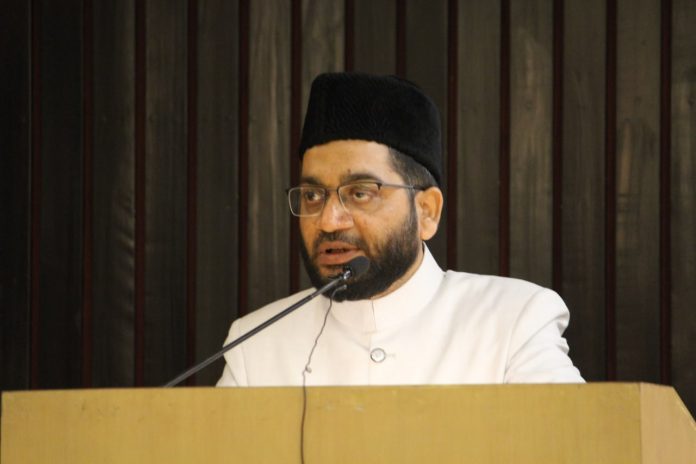New Delhi, August 9, 2024: The President of Jamaat-e-Islami Hind (JIH), Syed Sadatullah Husaini, has strongly opposed the Waqf (Amendment) Bill, 2024, which was tabled in Parliament yesterday. He declared that the bill, which proposes significant changes to the Waqf Act of 1995 under the new UWMEED Act, is unacceptable to the Muslim community.
In a statement, Syed Sadatullah Husaini criticized the proposed amendments, stating, “We oppose the government’s amendments to the Waqf Act, as they seek to diminish the autonomy and integrity of Waqf properties and the communities they serve. This is not acceptable to the Muslim community.”
He argued that the legislation appears designed to dismantle the legal structure of Waqfs, which is a constitutionally guaranteed right for religious minorities to preserve their community’s heritage and religious practices.
One of the most concerning aspects of the bill, according to Husaini, is the introduction of what he termed as “Collector Raj,” which grants district collectors unprecedented authority over Waqf properties. This shift, he asserted, would undermine the finality and decisiveness of the Waqf Tribunal and remove the concept of waqf by user. He also highlighted that the bill extends the period for resolving Waqf property disputes beyond the current one-year limit, which he believes will create confusion and legal challenges.
Syed Sadatullah Husaini expressed alarm over the lack of meaningful consultation with key stakeholders in drafting the bill. He stated, “The bill’s sweeping changes were made without consulting experts in Waqf jurisprudence or members of the Muslim community. Redefining Waqf is beyond the legislative domain and is deeply rooted in Muslim Personal Law.”
Husaini also rejected media claims that the current Waqf Board Act usurps lands belonging to other religious communities, labeling these claims as fabricated and unsubstantiated. He emphasized that the Waqf Board operates legally under government-approved laws and is supervised by the government.
The JIH President further criticized the bill for drawing inspiration from outdated colonial laws, which position the Collector as the ultimate authority over Waqf properties. He likened this to stripping specialized bodies like the National Green Tribunal or the Income Tax Appellate Tribunal of their respective authorities. He also warned that the bill threatens to create further disputes by removing the long-standing practice of waqf by user.
Additionally, Husaini condemned the bill’s provisions allowing state governments to appoint all members of the Waqf Board, effectively eliminating the democratic election of at least two members from Muslim communities. He expressed concern over the dilution of requirements for Muslim representation in the Central Waqf Council and the indirect undermining of Islamic law through the removal of oral appointments of Mutawallis.
In conclusion, Mr. Husaini called on the government to withdraw the bill and engage in proper consultations with the Muslim community. He urged opposition parties, particularly NDA allies like JDU and TDP, to oppose the bill. While acknowledging that some proposed changes, such as the inclusion of women and representation from Shia or other underrepresented schools of thought, are positive, he emphasized that laws should be made for the welfare of the people and that those affected should be included in the consultation process.
He also warned that if necessary, JIH would approach the Supreme Court to challenge the amendments, arguing that they violate constitutional provisions, established norms, and the principles of natural justice. He concluded, “Instead of protecting people’s property, these changes could lead to their destruction. It is crucial to stop these amendments.”




